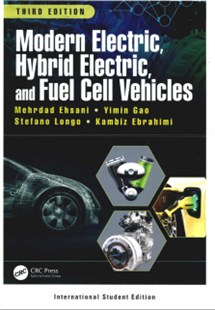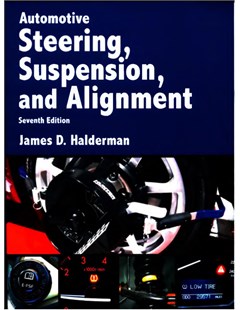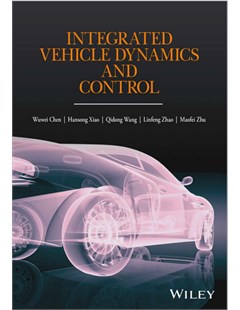Modern Electric, Hybrid Electric, and Fuel Cell Vehicles
Modern Electric, Hybrid Electric, and Fuel Cell Vehicles is an introduction to automotive technology, with specic reference to battery electric, hybrid electric, and fuel cell electric vehicles. It could serve electrical engineers who need to know more about automobiles or automotive engineers who need to know about electrical propulsion systems.
2019
Modern Electric, Hybrid Electric, and Fuel Cell Vehicles is an introduction to automotive technology, with specic reference to battery electric, hybrid electric, and fuel cell electric vehicles. It could serve electrical engineers who need to know more about automobiles or automotive engineers who need to know about electrical propulsion systems.
Modern Electric, Hybrid Electric, and Fuel Cell Vehicles consists of 13 chapters.
+ Chapter 1, the social and environmental import of modern transportation is discussed. This mainly includes air pollution, global warming, and petroleum resource depletion associated with the development of modern transportation. In this chapter, the impact of future vehicle technologies on the oil supplies is analyzed. The results are helpful for the future development strategy of the next-generation vehicles. In addition, the development history of EV, HEV, and FCV is briefly reviewed.
+ Chapter 2, the basic understanding of vehicle performance, power source characteristics, transmission characteristics, and equations used to describe vehicle performance are provided. The main purpose of this chapter is to provide the basic knowledge that is necessary for understanding vehicular drive train design.
+ Chapter 3, the major operating characteristics of different heat engines are introduced. As the primary power source, the engine is the most important subsystem in conventional and hybrid drive train systems. A complete understanding of the characteristics of an engine is necessary for the design and control of conventional cars and HEVs.\
+ Chapter 4, EVs are introduced. This chapter mainly addresses the design of electric propulsion systems and energy storage devices, the design of traction motor and transmission, the prediction of vehicle performance, and simulation.
+ Chapter 5, the basic concept of hybrid traction is established. Various configurations of HEVs are discussed, such as series hybrid, parallel hybrid, torque-coupling and speed-coupling hybrids, and other configurations. The major operating characteristics of these configurations are presented.
+ Chapter 6, several electric propulsion systems are introduced, including DC, AC, permanent magnet brushless DC, and switched reluctance motor drives. Their basic construction, operating principles, and control and operating characteristics are described from the traction application point of view.
+ Chapter 7, the design methodology of series hybrid electric drive trains is presented. This chapter focuses on the power design of engine and energy storage, design of traction motor, transmission characteristics, and control strategy. A design example is also provided.
+ Chapter 8, the design methodology of parallel hybrid electric drive trains is provided. This chapter includes driving pattern and mode analysis, control strategy, design of the major components (engine, energy storage, and transmission), and vehicle performance simulation.
+ Chapter 9, the design methodology of mild hybrid drive trains is introduced with two major configurations of parallel torque coupling and series–parallel, torque–speed coupling. This chapter focuses on operation analysis, control development, and simulation.
+ Chapter 10, different energy storage technologies are introduced including batteries, ultracapacitors, and flywheels. The discussion focuses on power and energy capacities. The concept of hybrid energy storage is also introduced in this chapter.
+ Chapter 11, vehicular regenerative braking is introduced. In this chapter, different controls of regenerative braking are analyzed, including braking force distribution on the front and rear wheels, amount of braking energy in various driving cycles, and the amount of energy that can be recovered by regenerative braking.
+ Chapter 12, different fuel cell systems are described, mainly focusing on their operation principles and characteristics, technologies, and fuel supplies. Vehicular applications of fuel cells are also explained.
+ Chapter 13, the systematic design of fuel cell hybrid drive trains is introduced. First, the concept of fuel cell hybrid vehicles is established. Then, its operating principles and control of the drive train are analyzed. Lastly, the design methodology is described, focusing on the power design of the fuel cell system, electric propulsion, and the energy storage system. A design example and its corresponding simulation verification are also provided.
Ehsani, Mehrdal. Modern Electric, Hybrid Electric, and Fuel Cell Vehicles. CRC Press, 2019.
Bộ sưu tập Lĩnh vực Công nghệ ô tô
 |  |  |
| Automotive steering, suspension, and alignment | Integrated vehicle dynamics and control |
Thứ Hai, 22:16 13/02/2023
Copyright © 2018 Hanoi University of Industry.